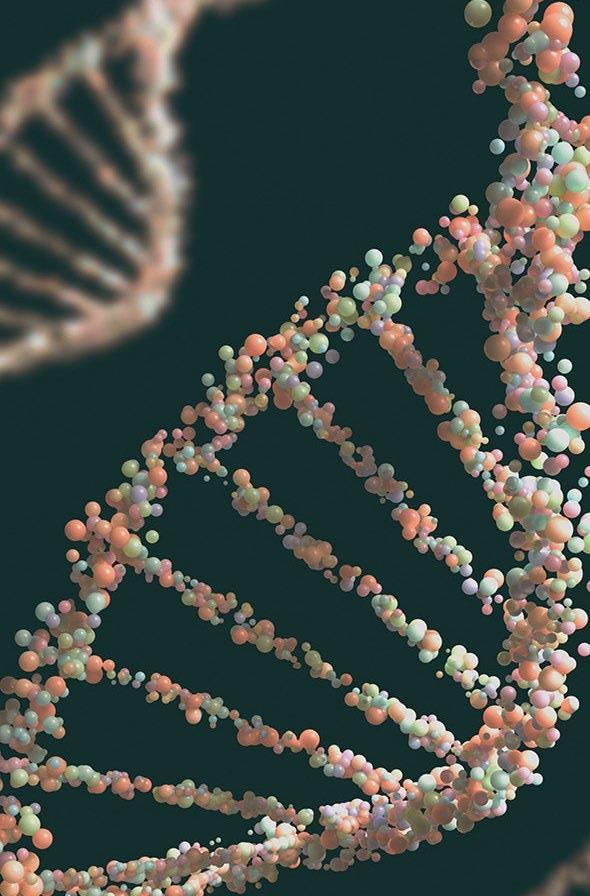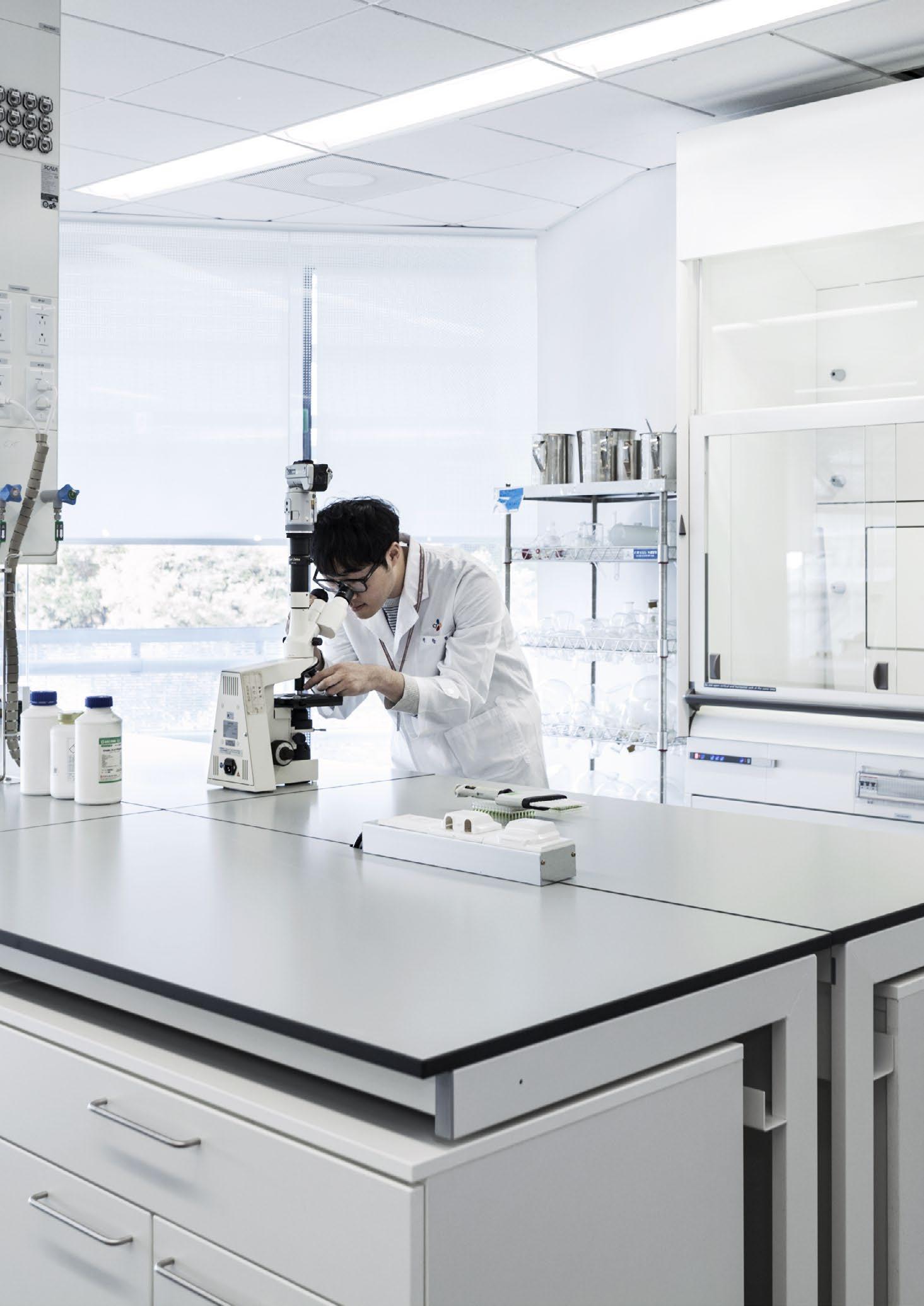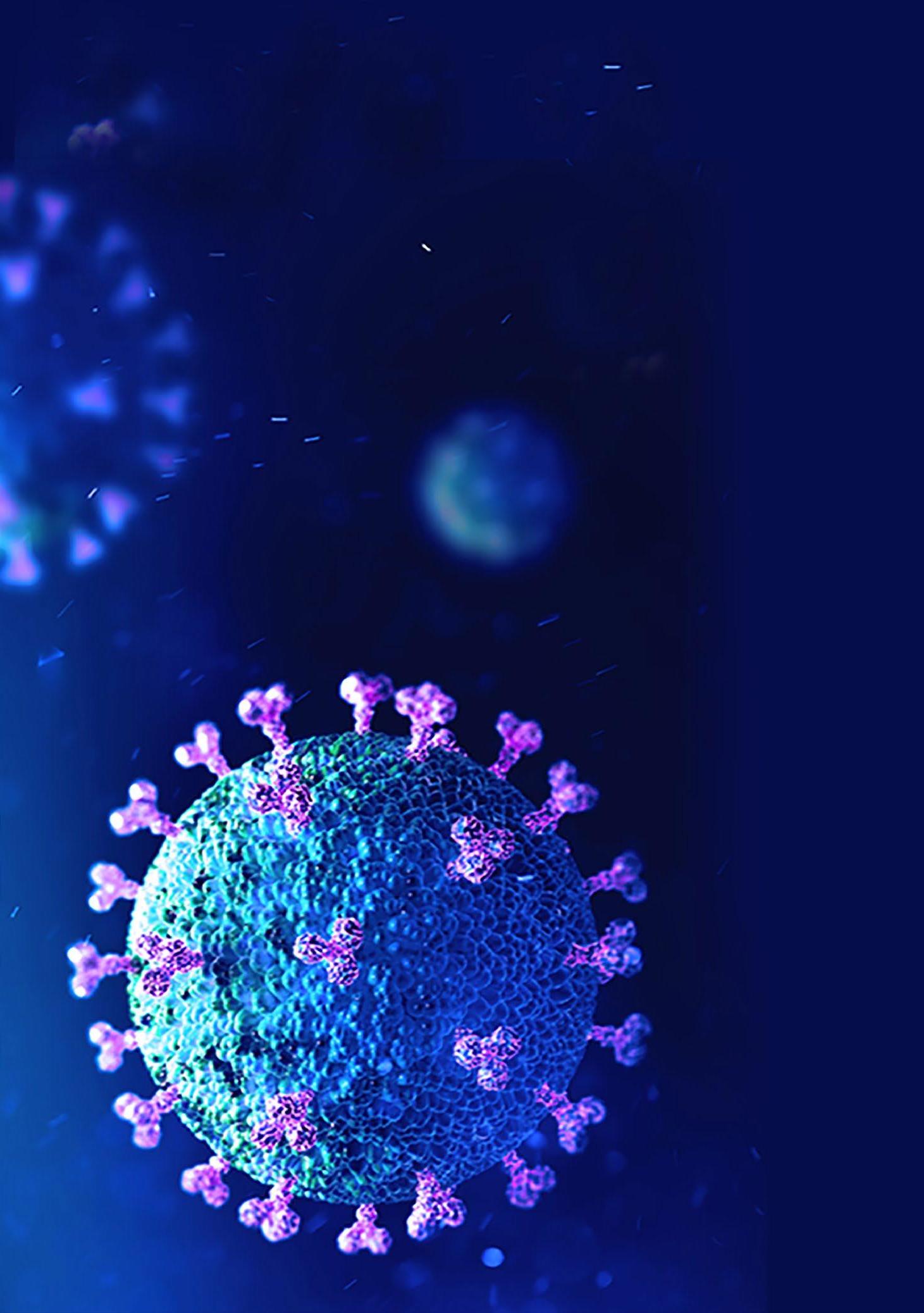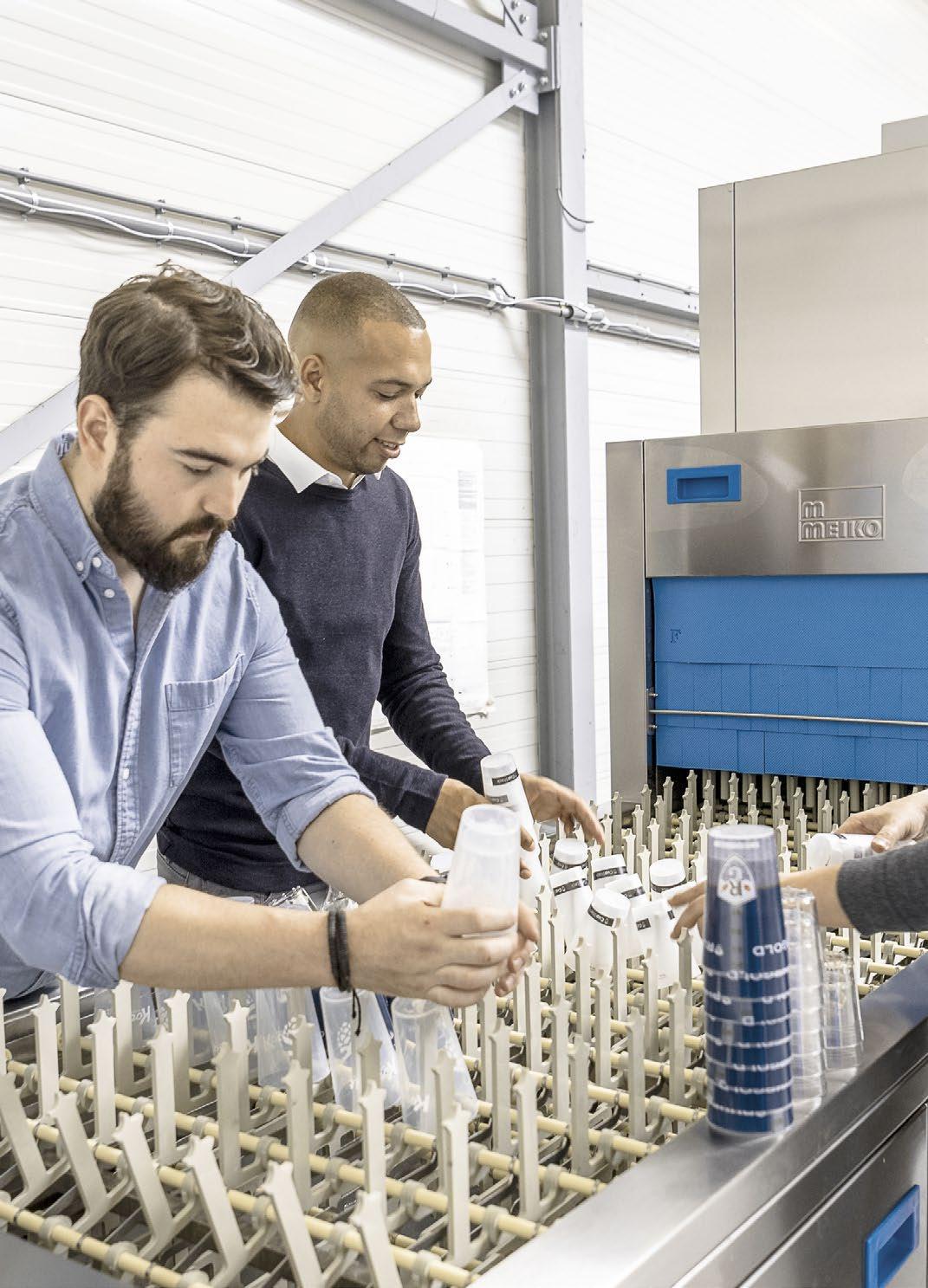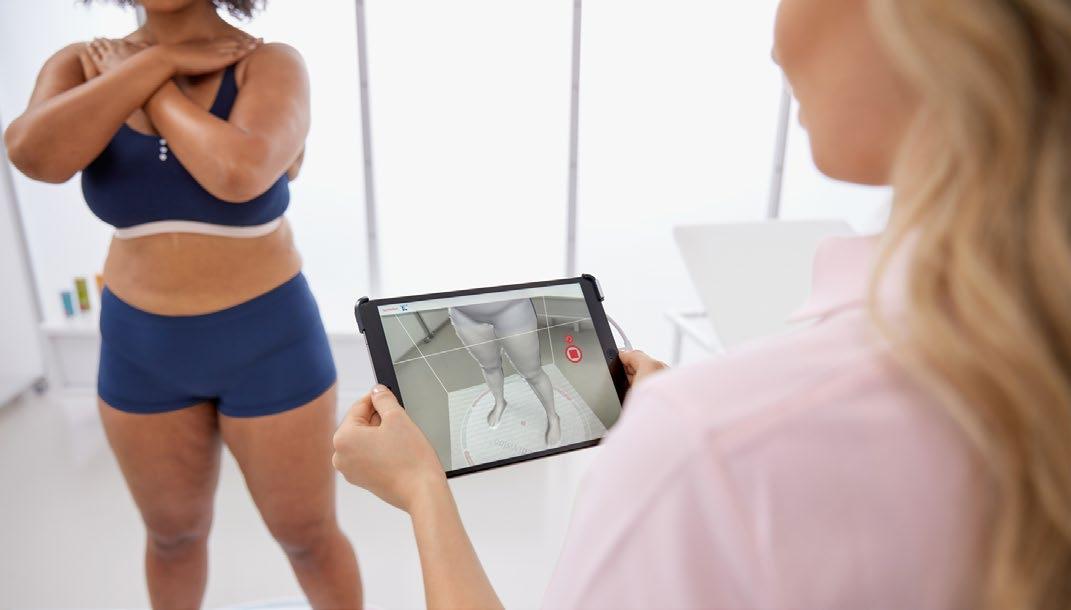
4 minute read
Dr Wolff’s taboo-breaking mission to improve women’s lives
Menopause
By Rueben Hale (Oh & Hale PR), Linda Siekdrees (Dr Wolff Australia)
Advertisement
Getting women to talk openly about stigmatised symptoms of menopause once seemed out of the question. Dr Wolff Australia says old taboos are fading, and the time is right to educate women and #breakthetaboo of menopause.
Vaginal dryness is a taboo topic which affects almost one in four women during perimenopause, with that figure climbing to nearly one in three during the menopause transition.1Common symptoms are burning, itching, or pain during sexual activity. Women also suffer from a wide range of additional symptoms, mostly hot flushes, insomnia, and reduced sex drive. Most concerningly, stigma is considered the main reason why almost half of women experiencing symptoms don’t report it to their healthcare providers. Even more concerning is that less than 4% of affected women actively use any of the many proven therapies.1

With the number of women not receiving treatment, Dr Wolff explains that education has become a critical part of breaking down menopause stigma to improve health and wellbeing outcomes. Linda Siekdrees, Head of Business Development Australia & New Zealand at Dr Wolff Australia, launched the ‘Break The Taboo’ campaign in Australia last November with an online discussion about menopause, attracting more than 300 registrations.

From left: Caroline Baum and Jane Caro
Dr M Talat Uppal
1 Waetjen LE, Crawford SL, Chang PY, Reed BD, Hess R, Avis NE, Harlow SD, Greendale GA, Dugan SA, Gold EB; Study of Women’s Health Across the Nation (SWAN). Factors associated with developing vaginal dryness symptoms in women transitioning through menopause: a longitudinal study. Menopause. 2018 Jun 18. doi: 10.1097/GME.0000000000001130. [Epub ahead of print]
“It is Dr Wolff’s mission to guide and educate women that there are solutions and that they are not alone. It was heartening to our causewhen people from across the country and from diverse backgrounds joined in our conversation. The engagement with the keynote speakers was a little slow initially, but soon people relaxed and asked lots of questions. For us, it was immediately clear that information about vaginal dryness and other taboo topics were in high demand. We realised that these open talks and education need to be ongoing to drive change.”
On May 5, Dr Wolff launched ‘Get On The Couch’ social movement, aiming to encourage women to start talking more openly about their menopause journey. Host and author Caroline Baum was joined on the couch by feminist social commentator Jane Caro AM, TV presenter and author Dr Jonica Newby, obstetrician & gynaecologist Dr M Talat Uppal, and columnist and writer Jo Pybus for frank open and conversations about their peri-menopause experience and leaving no taboo topic intact.
Dr Talat, OBGYN, VMO, Director at Women’s Health Road, explains that by empowering women to have conversations about menopause symptoms it will become routine.
“There is a huge shame and taboo in our culture that we need to fix, and we need to make it more normal to articulate these difficulties women have in perimenopause and menopause. As a doctor, I want to empower women, not tell them what they should do.”
The other guests echoed the fundamental need for education and communication to break down outdated stigmas and free ideas and experiences amongst women.
Caro and Dr Newby explain that old ideas and misinformation about menopause persist in an environment of shame and silence.
Caro: “Women are conditioned to the fact that from an early age, our bodies will hurt, so we get used to pain. We think menopause is just another one of those things we need to put up with.”
Dr Newby: “We need to get rid of the terms “sex drive” and “libido” in our conversations. I lost the sensitivity on my skin. This reduced the effectiveness of my orgasm. I couldn’t trust my body to be able to respond.”
About vaginal dryness
Perimenopausal and menopausal vulvovaginal dryness usually occurs for the first time between the ages of 41 to 55. This vulvovaginal dryness is the result of hormonal changes, especially the decline in estrogen. Many women experience dryness in the genital area –the vaginal skin becomes thinner and more fragile. This process is quite normal but can bring considerable discomfort, especially during sexual activity.
Younger women can also experience vaginal dryness e.g., after uterine or ovarian surgery, during pregnancy and lactation, when taking the pill or with sexual anxiety. Some medications and stress can also be associated with vaginal dryness.
It is normal for women to experience vulvovaginal dryness at some stage of their life, but the good news is your doctor or pharmacist can help.
Jane Caro Moisturising Cream for vaginal dryness
Dr. Wolff’s Vagisan Moisturising Cream is a hormone-free cream for vaginal dryness. It alleviates symptoms like burning, itching and pain caused by vaginal dryness. It also helps against pain during sex.
Unlike other products for vaginal dryness Dr. Wolff’s Vagisan Moisturising Cream is a real cream and not a gel (aqueous preparations). Its dual effect provides moisture AND soothing lipids (fats) to the skin in the vaginal and external genital area.
About us
Dr. Wolff Australia is part of the Germanybased Dr Wolff Group. The company employs around 675 people across its medical and cosmetics division, producing Dr Wolff’s Vagisan, Alpecin, Alcina, Plantur, Karex, Bioniq RepairToothpaste and Linola. We are proud to tackle issues that no one else dares to tackle, and we take paths that no one else treads.

Photo: From left: Dr Jonica Newby, Dr M Talat Uppal, Jo Pybus and Caroline Baum.

